News
Get Help with Your SeaGL Proposal!
SeaGL is committed to promoting new voices and helping newer speakers get in front of our friendly audience. So whether you want help with your first proposal or guidance tailoring a talk to SeaGL’s audience, we invite you to join us for Office Hours. You can either use an IRC channel to find us at #seagl on freenode.net or visit https://webchat.freenode.net/ via any web browser. You’ll choose a nickname, type #seagl into the channel box, confirm that you aren’t a robot and then connect.
-
Monday, June 27th, 2-4pm (PDT)
-
Thursday, July 7th, 6-8pm (PDT)
-
Friday, July 8th, 5-7pm (PDT)
-
Monday, July 11th, 4-6pm (PDT)
-
Wednesday, July 13th, 6-8pm (PDT)
We have a great roster of volunteers who will be happy to help you turn your ideas into a proposal. You can find more information about our call for presentations here.
Feel free to contact us if you have any questions, either by
emailing participate@seagl.org
or visiting us on IRC on
Freenode in
#seagl.
Calling all speakers! Our 2016 Call for Participation is open!
We are a local Seattle conference dedicated to supporting newer local speakers! SeaGL welcomes speakers of various backgrounds and levels of experience – Even
if you’ve never spoken at a technical conference. If you’re excited about GNU/Linux technologies, or free and open source software and communities, then we want to hear your
ideas.
Submit your
presentation
now.
The CFP deadline is midnight PDT, August 1, 2016.
Our talk format is generally 50 minutes of speaking followed by 10 minutes of
questions. Here are some topic ideas:
- How to get involved in free and open source software
- Dev/Ops
- Career tips and strategies
- Web development tools
- Policy and licensing affecting free and open source software development
- Hardware, Embedded Linux, or the Internet of Things
- Scaling and optimizing GNU/Linux
- The “cloud” and other distributed services
- Building free and open source communities
- Using free software at home, work, or school
- Security and privacy online
- Anything else that you think would be interesting to new or seasoned GNU/Linux enthusiasts!
Feel free to contact us if you have any questions, either by
emailing participate@seagl.org
or visiting us on IRC on
Freenode in
#seagl.
Videos of our 2015 keynote addresses are now posted on our
YouTube channel:
Shauna Gordon-McKeon, “Beneath the Code, the Heart”
Richard M. Stallman, “Free Software and Your Freedom”
We’re excited to announce the dates for this year’s Seattle GNU/Linux
Conference: Friday, November 11 and Saturday, November 12, 2016.
We’re also happy that Seattle Central College will once again host us this
year.
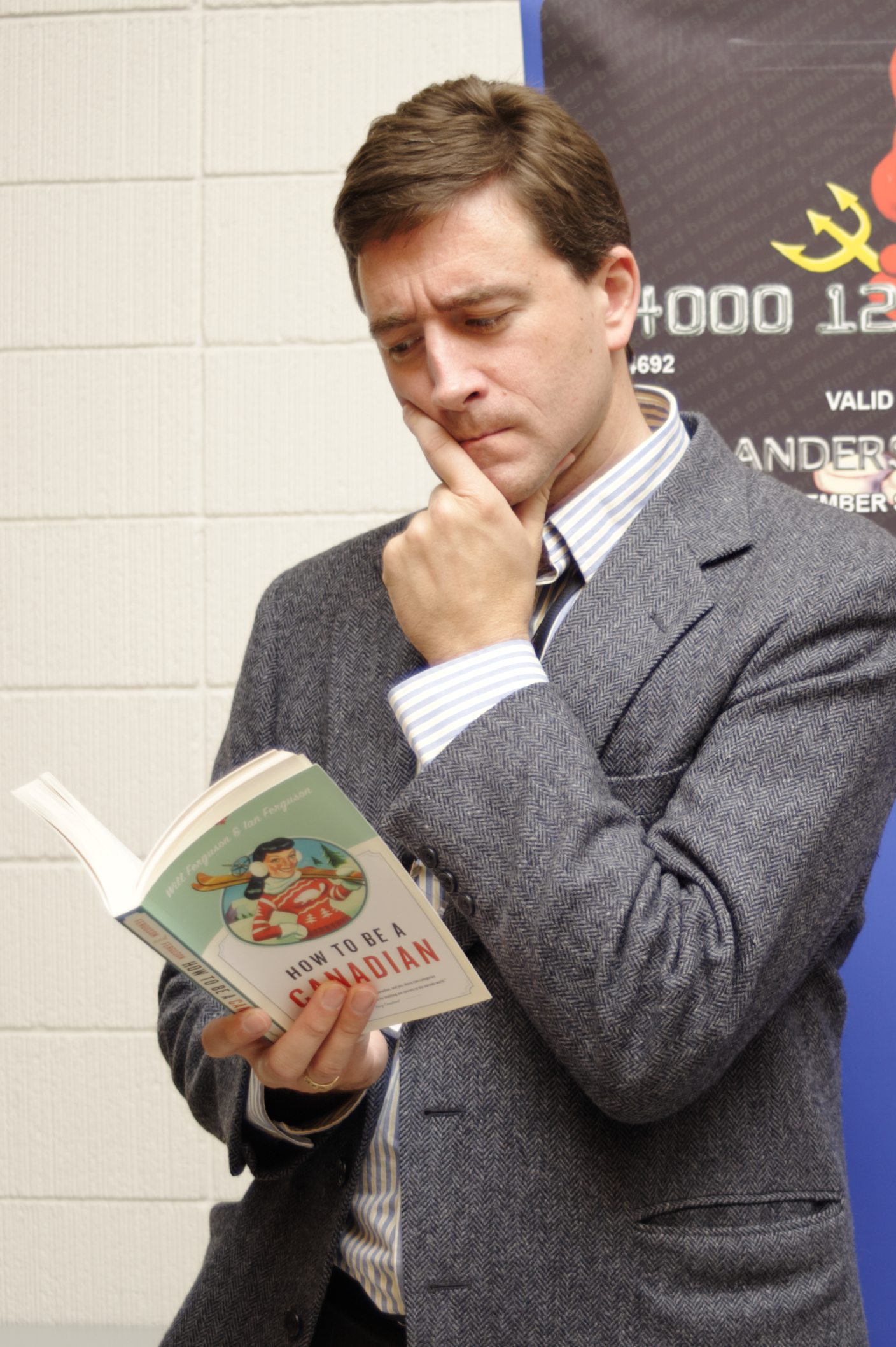
The Cascadia Community Builder Award recognizes a person who has made an
outstanding contribution to the free software movement in the Cascadia region.
The 2015 inaugural winner is Michael Dexter.
The award was given for the first time on Saturday, October 24th at the Seattle
GNU/Linux conference and is expected to remain a feature of the local event.
Michael was chosen because his work with the Portland Linux/Unix Group and the
BSD community exemplified the type of unsung community-building work that is so
critical to the growth of the free software movement.
Michael has used BSD Unix systems since January of 1991 and provides BSD and
ZFS support at Gainframe. He has supported BSD Unix with download mirrors,
events, and projects for over a decade and is best known for his virtualization
work. His advice for free software community activists is, “Trust your
instincts, ask lots of questions, and ignore the discouragement that will come
from every side.”
Michael was nominated by someone who got to know him through his tireless work
with the Portland Linux User Group. The nomination reads, “Michael has
organized over one hundred speakers for our two monthly meetings, including
Linus Torvalds, Bradley Kuhn, and Ward Cunningham.”
Michael received an engraved
multi-tool, made by the Oregon-based Leatherman company, that includes both a
bottle opener and a wire stripper – critical tools for every free software
community organizer. He will also be invited to participate in choosing
the recipient of future Cascadia Community Builder awards.
Nominations for the 2016 honoree will open next summer.
As we wrap up our third annual conference, we thank all of our speakers,
sponsors, volunteers, exhibitors, and attendees! Each year we see greater
community participation and record attendance numbers.
We’re also grateful to everyone who either invited friends to SeaGL or
spread the word through social media. Word of mouth is absolutely critical to
the success of our conference.
Special thanks goes to the staff at 500 East,
who hosted our keynote speeches and after-party.
Join our mailing
list
to get announcements about the 2016 conference.
We’d love your feedback! Tell us what you liked and what you’d like to see next
year:
See you in 2016!
Speakers:
If Google Hangouts works on your laptop and you want to livestream talks to the
SeaGL YouTube channel (they’ll also be automatically recorded by this
process), here are the directions!
1) Go to plus.google.com and log in with the account credentials provided by
an organizer.
2) Click the round avatar in the upper right, and select SeaGL from the list.
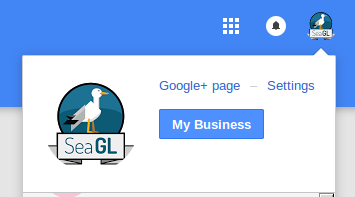
3) Click the “google+ page” link. You’re now on the SeaGL Google+ page.
4) In the upper left, click the “google+ page” button then select “hangouts”
from the menu which drops down.
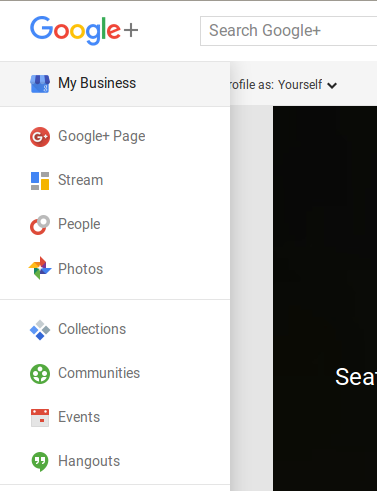
5) On the hangouts page, click “hangouts on air” (the middle link in the bar
at the top). Then click the big yellow “create a hangout on air” button.
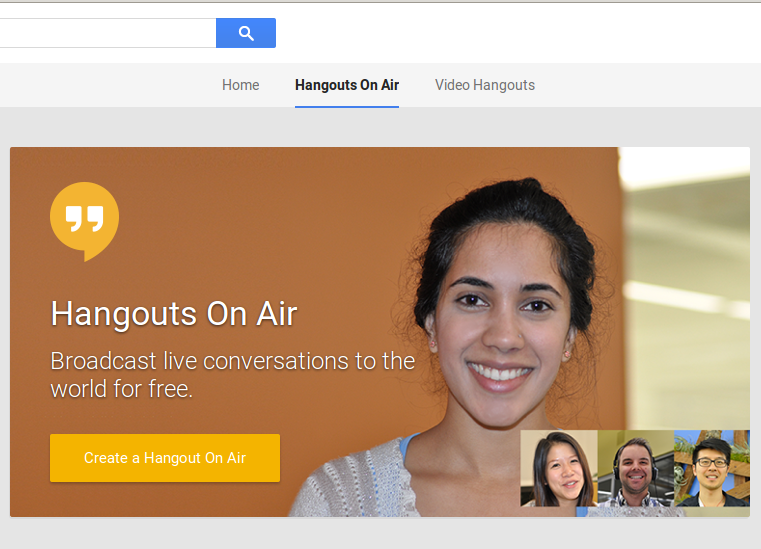
6) Put in your talk title, paste in your abstract if you have time, and click
the big green “share” button.
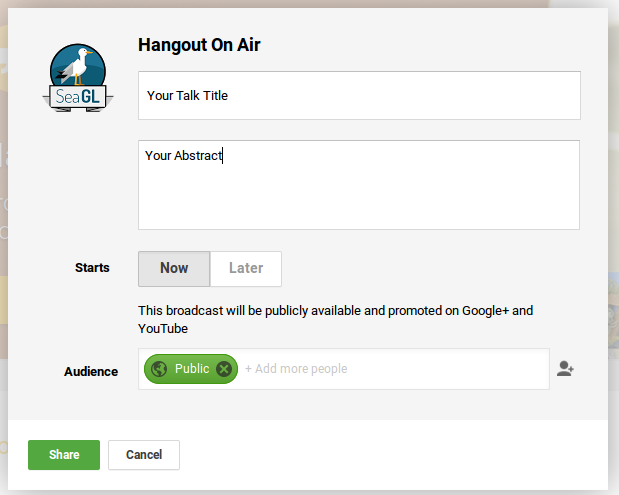
7) Click the big blue “Start” button.
8) When it tells you to invite guests, click “skip”.
9) Point your webcam at yourself and click the big green “start broadcast”
button at the bottom. Optionally, before you start the broadcast, use the
icons on the left of the hangout to share your screen.

Talk recordings are available at https://www.youtube.com/seaglorg
Due to some logistical issues, we’ve had to move this year’s keynote speeches
off-site from Seattle Central College.
The keynotes will take place at 500 East, “a
social house” just a short walk from the school. Here’s the address:
500 E Pine St, Seattle, WA 98122
Here’s the Saturday afternoon schedule:
| Time |
Event |
| 1:30 - 2:30 p.m. |
Last batch of talks at the school |
| 2:30 - 3:00 p.m. |
Everyone moves to 500 East |
| 3:00 - 4:00 p.m. |
Shauna Gordon-McKeon’s talk and the Cascadia Builder Award presentation |
| 4:00 - 6:00 p.m. |
Richard M. Stallman’s talk |
| 6:00 p.m. |
Bar opens and attendees can mingle |
Keynote speaker Shauna Gordon-McKeon talks to SeaGL:
Q: Could you please introduce yourself and tell us a little about your
background?
My name’s Shauna Gordon-McKeon, and my background is in the sciences. I was a
neuroscience researcher for several years during and after college, and that’s
when I first started writing software, and understanding the difference
between free and proprietary software. I didn’t leap into the free software
community right away, though - I was more focused on open data and open
knowledge. I started doing community organizing around government transparency
and around open access to scientific research, and as I learned more about
software I saw how FOSS fits in with that. To me, they’re all manifestations
of the same core values - the belief that individuals have a right to
information about the world around them, whether that’s the results of an
experiment or data about policing or what exactly a program is doing when you
run it on your computer.
Q: Without tipping your hand on the actual talk, can you give us an
idea of what we might expect?
I already did! Above, I mentioned the “core values” that draw me to free
software. My talk is going to be highlighting the values that matter to the
free software community - how individuals can follow their values to find
meaningful ways to contribute, and how we as a community can grow in alignment
with those values.
Q: Is this your first visit to SeaGL? If so, what are your expectations? If
not, can you give us your impressions of the event?
This will be my first visit to SeaGL, and I’m looking forward to it. I’ve
heard wonderful things! I enjoy smaller conferences a great deal - they’re
less rushed, and it’s easier to connect with new people. I hope to have some
great conversations with members of the community, and to be back next year.
Free Software Foundation staffer Georgia Young will speak at SeaGL this
weekend:
Q: Could you please introduce yourself and tell us a little about your
background?
My name is Georgia Young. I am the program manager for the Free Software
Foundation and live in the Boston area. I joined the FSF in January as
outreach and communication coordinator, had previously worked on
LibrePlanet in 2014, and took on my new role this past summer. My job
includes event management, writing about free software issues,
connecting with the free software community, and fundraising to sustain
the FSF’s work. I’m also a musician.
Q: Without tipping your hand on the actual talk, can you give us an
idea of what we might expect?
This is my first free software talk, and I wanted to introduce people to
a great free software program that is licensed under the GNU General
Public License, a free software license written by Richard Stallman and
administered by the Free Software Foundation.
I discovered Scribus around 2009, when I was in graduate school. Much of
my professional experience is in the publishing industry, where nonfree
programs reign. I wasn’t consciously thinking about Free as in Freedom
when I chose Scribus, but the idea of software that was effective but
not created by huge corporations like Adobe or Microsoft inherently
appealed to me.
Twelve years after its initial release, I feel like Scribus deserves
more attention than it gets. My aim is to get people interested in using
this program for their own documents, and to get them thinking about
freely licensed fonts, and other free software programs that can be used
in concert with Scribus.
Q: Is this your first visit to SeaGL? If so, what are your expectations? If
not, can you give us your impressions of the event?
It’s my first visit to SeaGL, to Seattle, to the Pacific Northwest in general!
I’m looking forward to seeing a few familiar faces, meeting lots of new
people, and hearing other great ideas arising from the free software
community.
Q: If attending your talk inspires others to present at a conference, what
can they do?
A: Talk to me or visit the Free Software Foundation table in the exhibit hall
for more information about submitting a proposal to LibrePlanet, the FSF’s
annual free software conference in the Boston area, March 19-20, 2016!





